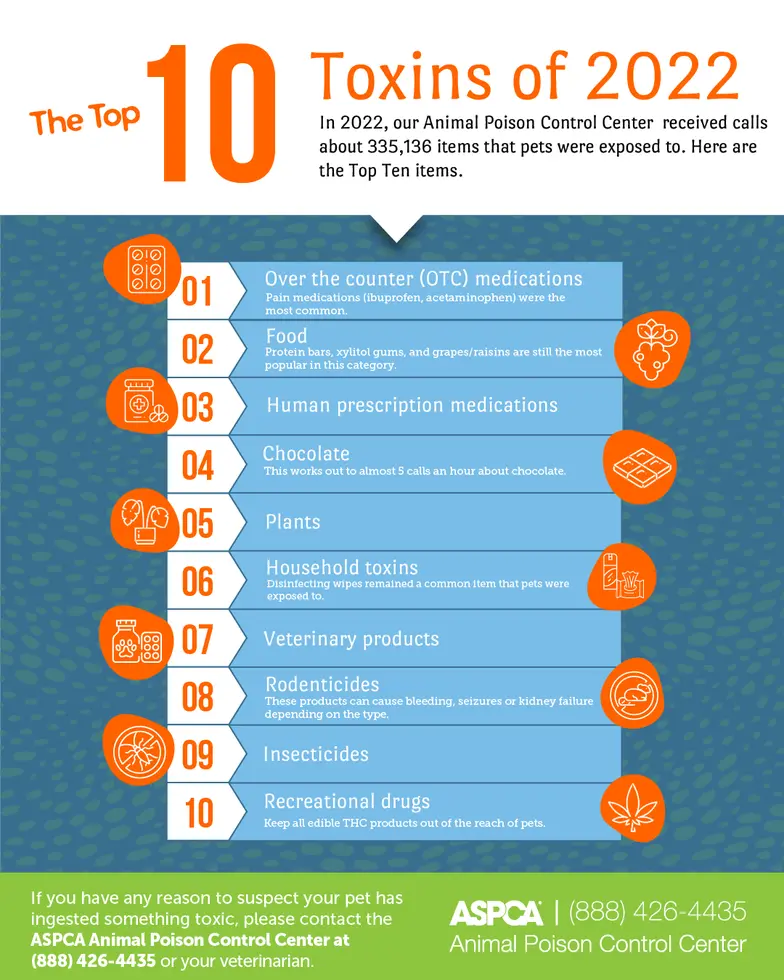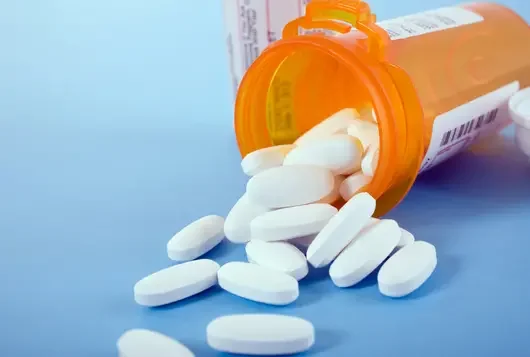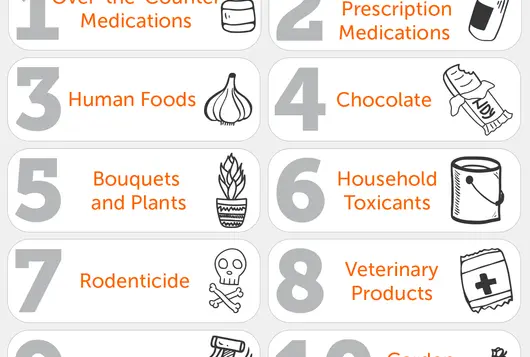Top 10 Pet Toxins of 2022

Hold or right-click to save
Every year the ASPCA Animal Poison Control Center (APCC) compiles its data from the calls received about pets exposed to toxins and releases the top 10 categories of potential poisons.
In 2022, APCC saw a nearly 5% increase in case volume. Here are the most common categories called in for pet toxin exposure, starting with the most frequent.
- Over-the-Counter (OTC) Medications
OTC medications are the top toxin on the list for the fifth year in a row and make up more than 16.9% of APCC’s call volume. Ibuprofen and acetaminophen were the most common. - Human Food
Food products were 15.2% of APCC cases last year. The most common food product cases include ingestion of protein bars, xylitol gums, grapes, and raisins. - Human Prescription Medications
Common prescription medications included antidepressants, cardiac, and ADHD meds, which can lead to gastrointestinal upset and kidney failure in severe cases. - Chocolate
APCC averages almost 5 cases per hour of chocolate ingestion per day. - Plants
8.6% of calls to the APCC were related to indoor and outdoor plant ingestion. - Household Toxins
Disinfecting wipes remained a common item of exposure concern. - Veterinary Products
Calming chews and joint medication were a concern in this category. - Rodenticides
Serious symptoms can result from ingestion of rodenticides, such as bleeding, seizures, or kidney failure. - Insecticides
As safer alternatives for pest control emerge, we have seen a decrease in the number of calls concerning insecticides. - Recreational Drugs
For the first time ever, recreational drugs including marijuana-based drugs, hallucinogenic mushrooms, and cocaine made the list, knocking out gardening products in the tenth spot. In 2022, the APCC team fielded nearly 11% more calls related to potential marijuana ingestion than in the previous year, and they have seen a nearly 300% increase in calls over the past
5 years. The cases most commonly seen at the APCC involve pets ingesting marijuana-laced baked goods which are more dangerous than ingesting plant material and can result in symptoms such as stomach upset, urinary incontinence, and ataxia.
APCC is available to support veterinarians treating pets for suspected poisonings and can be reached on their 24-hour hotline (888) 426-4435.
Download and share the Top 10 Pet Toxins of 2022 with your community.
We have lots more on this subject:
Topics:
Shelter Medicine
,
Toxicology & Poison Control
Type:
Job Aid Downloads




